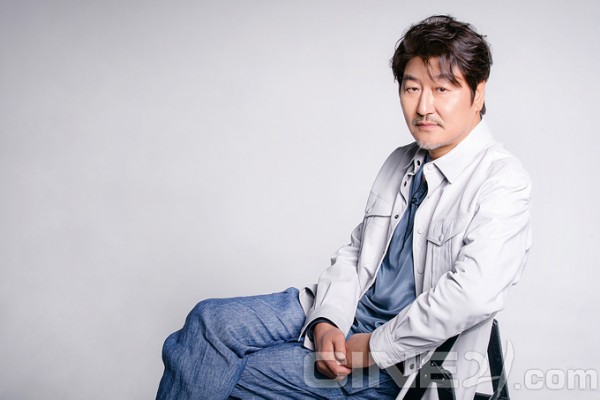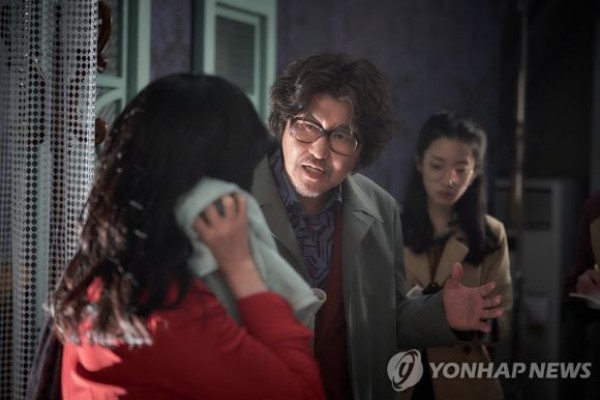130, Suyeonggangbyeon-daero,
Haeundae-gu, Busan, Republic of Korea,
48058
WOO Min-ho of THE DRUG KING
May 09, 2018
- Writerby LEE Hwa-jung
- View9009
The Korean Evils of the 1970s

The latest film from WOO Min-ho, director of Inside Men (2015), is based on the true story of LEE Doo-sam, an infamous drug dealer in Busan in the 1970s. The film chronicles the journey of the man known as ‘the drug king’, whose pursuit of power and wealth eventually brings about his downfall. The term ‘drug king’ inevitably calls to mind Pablo Escobar, but LEE's story differs from that of the Columbian drug cartel leader. Against the backdrop of the Korean Dream of the 1970s, the film depicts a man who dreams of rapidly making a fortune but perishes in the end. SONG Kang-ho becomes an apostle of the Korean evils, which are illustrated here in an original way.
Where did your idea for The Drug King come from?
Apparently, men like LEE Doo-sam really existed in the early 1970s. When the Japanese government imposed strict laws against drugs – with capital punishment for meth production, for example – Busan became the perfect transit point for drug trafficking due to its proximity to the archipelago. What grew out of this was a production with methods like those employed by an Original Equipment Manufacturer (OEM), whereby drugs were manufactured and then re-exported to Japan. One day, I found by chance in an old newspaper a photo taken the moment the drug king was arrested. It showed him being hauled out of his holiday home in Millak Neighborhood, Busan, with soldiers and police officers standing outside the door holding carabines. This image was the starting point for the film.
Was he really called ‘drug king’ at that time? The film must have required a lot of research to provide the background to this story based on real events and real people.
There is much more material about this than I would have expected. I traveled to Busan and met the police officers who oversaw the case, as well as the other people involved. I even found a lot of old newspapers in library archives. And indeed, the expression ‘drug king’ was used in the headlines. How could there even be a drug king under the Yusin Constitution (marked by the excessive centralization of powers in the Korean president PARK Chung-hee)? At first, I found it too difficult to believe. However, as I researched further, I realized that far from preventing it, this period was what made it possible. At a time when people were striving for a good life, they would turn a blind eye to all sorts of evil deeds.
Despite being an evil drug dealer, LEE Doo-sam follows his own logic to provide for his family, which is characteristic of the 1970s.
I didn’t realize it while shooting, but only later when I began editing the film; the drug king wasn’t much of a king after all. In the film, there are hardly any benefits he can enjoy. Even after he becomes the drug king of his time, he submits to power, gets beaten up by others and suffers the scorn of his family. I was born in 1971, and that was when my father’s generation was in its prime. They, too, lived life to the fullest and struggled against many hardships. Therefore, it’d be unfair of me to deem the entire period terrible.

One aspect for which there are many expectations is the portrayal of LEE Doo-sam by SONG Kang-ho (Snowpiercer [2013], A Taxi Driver [2017]).
From the start, when asked who I would rather see in the role of LEE Doo-sam, I would always give the same answer. SONG Kang-ho is definitely the kind of actor that all directors would like to work with at least once. During the past ten years, he has mostly played characters who are aware of the times they’re living in. However, I wanted to bring out the SONG Kang-ho that we saw in his early works. LEE Doo-sam does not awaken but expects the people to reflect on their own epoch through him. In designing the lead character, I aimed for the story not to have the dark themes of works such as the television series Narcos and the films The Godfather and Scarface. That was my main focus. I was very concerned by how I could create a typically Korean character and genuine feelings that wouldn’t be constrained by the limits of the genre.
LEE Doo-sam involves his cousins in his drug trafficking, which brings another interesting aspect of the film in that we get to see how drugs are made and how the business operates.
The ‘drug business’ is essentially a family business. Because there’s no one they can trust, drug dealers usually get their families involved, as proven by most records. Instead of taking the matter too seriously, I approached their feats from a fun and extravagant angle.
Please tell us more about the overall tone and rhythm of the film.
The basic concept was to convey the splendor of the 1970s. The world of drug trafficking was nothing like that of ordinary people, it was clearly made of excesses. I’ve been bold in my use of colors. I ruled out the tones usually employed in Korean films to represent the 1970s and made all colors a little bit brighter. In addition to the photography and the art direction, the costumes had to be flashy to match the colors of the background. I think I’ve pushed it to such an extent that it will remind people of the Hollywood films of the 1970s and they will wonder if Korea really was like that back then. In contrast to these vivid colors, I chose to highlight the film’s classic elements by shooting with only one camera. It had an incredible impact on the concentration.













